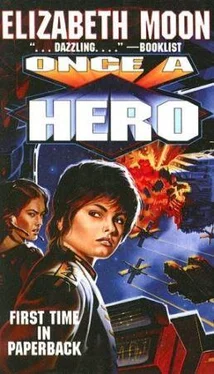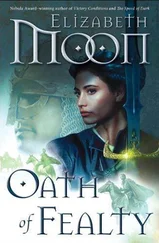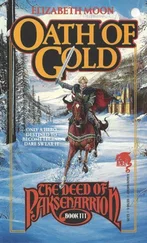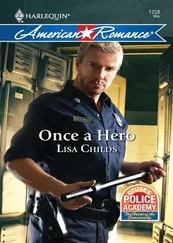Elizabeth Moon - Once a Hero
Здесь есть возможность читать онлайн «Elizabeth Moon - Once a Hero» весь текст электронной книги совершенно бесплатно (целиком полную версию без сокращений). В некоторых случаях можно слушать аудио, скачать через торрент в формате fb2 и присутствует краткое содержание. Жанр: Космическая фантастика, Боевая фантастика, на английском языке. Описание произведения, (предисловие) а так же отзывы посетителей доступны на портале библиотеки ЛибКат.
- Название:Once a Hero
- Автор:
- Жанр:
- Год:неизвестен
- ISBN:нет данных
- Рейтинг книги:3 / 5. Голосов: 1
-
Избранное:Добавить в избранное
- Отзывы:
-
Ваша оценка:
- 60
- 1
- 2
- 3
- 4
- 5
Once a Hero: краткое содержание, описание и аннотация
Предлагаем к чтению аннотацию, описание, краткое содержание или предисловие (зависит от того, что написал сам автор книги «Once a Hero»). Если вы не нашли необходимую информацию о книге — напишите в комментариях, мы постараемся отыскать её.
Once a Hero — читать онлайн бесплатно полную книгу (весь текст) целиком
Ниже представлен текст книги, разбитый по страницам. Система сохранения места последней прочитанной страницы, позволяет с удобством читать онлайн бесплатно книгу «Once a Hero», без необходимости каждый раз заново искать на чём Вы остановились. Поставьте закладку, и сможете в любой момент перейти на страницу, на которой закончили чтение.
Интервал:
Закладка:
“Don’t hate your father, either. Be angry with him, yes: he has hurt you and lied to you, and anger is appropriate. You need not forgive him too soon, any more than you forgive me. But don’t hate, because it is not natural to you, and it will destroy you.”
“I’m going away, as soon as I can,” Esmay said. “And I’m not coming back.”
“I know.” Again, a sense of vulnerability, but not intended to sway her decision. Her chin firmed. “Luci told me about the herd. You are right, and I will argue for Luci when the time comes.”
“Thank you,” Esmay said. It was all she could say; she kissed the old woman and went away.
The days crept by, then the weeks. She counted them off; she would not cause a scandal by moving to the city for the rest of her leave, but she could not help watching the calendar. Her resolve had hardened: she would go, and never return. She would find someone—not Luci, who had no feel for it, but someone else—to become the valley’s guardian. Nothing here meant anything to her now but pain and sorrow; the very food tasted bad in her mouth. She and her father had spoken each day of other things; she had been amazed at both of them, the way they could evade any mention of or reference to that disastrous afternoon. Her stepmother took her shopping in the city; she allowed herself to be draped in suitable clothes; she packed them into her duffel to take along.
Then it was the last week . . . the last five days . . . the last four. She woke one morning stabbed by the sorrow that she had been in her valley, but she had not seen it. She had to go one more time; she had to try to salvage something, some real memory that was also a good memory, from her childhood. She had been riding almost every day, just to keep Luci company, so if there was a horse free, she could go now, today.
For the dama, there was always a horse free. A trail horse? Of course, dama, and the saddle, and the bridle. And might the groom suggest that this horse accepted hobbles well? Very good. She went back into the kitchen, and collected a lunch. She felt, if not happy, at least positive . . . the pull of Fleet, she thought, the knowledge that in just a few days she would be back in her new home, forever.
The valley opened before her, magical again, as it had been in her childhood . . . as she would remember it in the moment of her death. It hardly deserved the name of “valley,” although when Esmay had first seen it, she’d been so young it seemed large. Now she could see that what she remembered was merely a saucer in the side of the mountain, a grassy glade in which a small pool trickled away in a murmuring stream that would become a rushing noisy stream only further down. On one side were the dark pines, secretive, rising from rocky ledges, and facing them were the white-boled poplars with their dancing leaves. In this brief mountain spring, the new grass was spangled with pink and yellow and white, the windflowers and snowflowers . . . a few weeks later, the tall scarlet and blue lupines would bloom, but now all the flowers lay close to the ground.
Esmay leaned back in the saddle and took in a deep breath. She wanted to breathe in and in, filling herself with the resinous scent of pine, the crisp scent of mint and grass, the sweetness of the flowers, the tang of poplar and even the sour rank smell of the lush weeds near the water. She could feel tears rising, and she clamped down on her emotions. Instead of crying, she dismounted, and led her horse forward to drink from the pool. Then she removed the saddlebags, and slung them over her shoulder. She led the horse to the fallen pine—still there after all these years—and unsaddled it; she put the saddle over the leaning trunk, then hobbled the horse before removing the bridle.
The horse worked its way back out into the sunshine, in the meadow grass, where it set to grazing. Esmay settled herself on the convenient rock she had placed years before, and leaned back against the saddle. She unbuckled the left saddlebag and took out the meat-filled pastries Veronica had packed. She would have five hours of peace here, before she had to start back.
She could hardly believe it was hers now. She belonged to it, to this chill rock with its multicolored lichens, to the trees and the grass, to the mountain itself . . . but by law and custom, as their saying went, it was now hers. By custom and law she could bar anyone from trespassing here . . . she could fence it, shield it, build a house here that no one ever entered but herself.
It had been her dearest dream, once. A little cabin, one or two rooms, all to herself, with no memories in it, here in this golden place. She had been a child then; in her daydream, food had appeared on the table without any effort of hers. Breakfast had been . . . had been cereal with cream and honey. Someone else, some invisible magical person, had washed the sticky bowl. She had always been out for lunch, usually perched on a rock high above, watching the sky. Dinner, in those dreams, had been fish from the stream, sweet-fleshed mountain trout, lightly fried.
Not this stream; it was too small, but downstream a few kilometers. She had fished there, the time she camped here for a week: reality, not dreams, by then, the summer she was eleven. The fish were as tasty as she’d imagined, but the hike back and forth had convinced her that she would have to find another food source.
Papa Stefan had been furious; so had her father, when he came back from the situation in Kharfra (there was always a Situation in Kharfra). Her stepmother had panicked, convinced that Esmay had killed herself . . . remembering that unsavory row, Esmay felt herself knotting up, the cold of the stone striking deep. She pushed herself off the rock and walked out into the sun, stretching out her arms to it.
Even at eleven she had known she would never kill herself, no matter what. Had Arris ever told her father? Probably not. She would have been afraid to introduce any more tension, any more difficulty, between father and daughter. Poor Arris, Esmay thought, closing her eyes against the sun as she lifted her face to it. She had been six years too late with her sympathy, six years too late with her shock and horror. Now she could understand how futile Arris must have felt, with a stepdaughter so awkward, so independent.
Esmay walked down the slope to the open grass. She crouched, putting a hand to the ground. It was cool—only on the hottest midsummer day would the ground feel warm up here—but not as cold as the rock. She let herself down onto the grass, and leaned back with her hands clasped behind her head. Above, the morning sky burned blue, the exact blue that felt right, that made her happiest. She had never found that blue on another planet. Under her shoulders and back, the land upheld her with just enough pressure.
“You’re not making it easy,” she said to the glade. Here and now, she could not imagine leaving Altiplano forever, giving this up forever. The horse, a few rods away, waggled an ear at her but went on munching.
She stretched out on her side, and looked at the flowers, reminding herself of their names. Some were original terraforming rootstock, and others had been developed here, for this particular world, from Terran gene lines. Pink, yellow, white, a few of the tiny blue-violet starry ones she had privately named wish-stars. She had had private names for all of them really, taken from the plant names in the old stories, whether or not they were really related. Campion and rosemary and primrose sounded pretty, so she used them; harebell sounded silly to her, so she didn’t. She touched them now with a fingertip, renaming them: pink rosemary, yellow campion, crisp white primroses. It was her valley, these were her flowers, and she could give them her names. Forever.
Читать дальшеИнтервал:
Закладка:
Похожие книги на «Once a Hero»
Представляем Вашему вниманию похожие книги на «Once a Hero» списком для выбора. Мы отобрали схожую по названию и смыслу литературу в надежде предоставить читателям больше вариантов отыскать новые, интересные, ещё непрочитанные произведения.
Обсуждение, отзывы о книге «Once a Hero» и просто собственные мнения читателей. Оставьте ваши комментарии, напишите, что Вы думаете о произведении, его смысле или главных героях. Укажите что конкретно понравилось, а что нет, и почему Вы так считаете.












